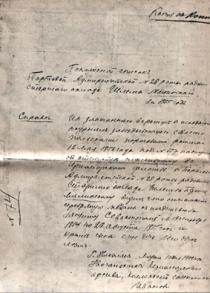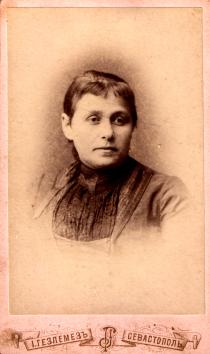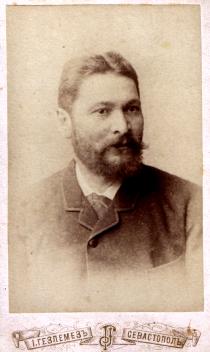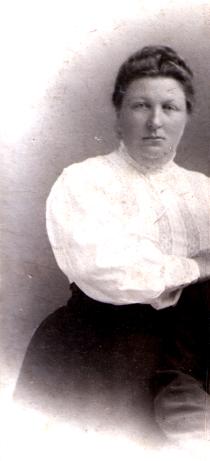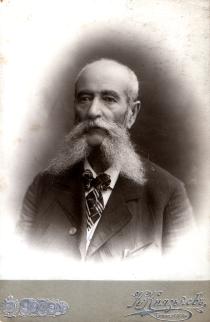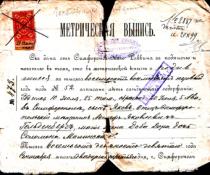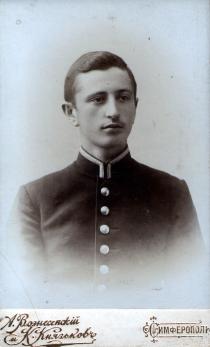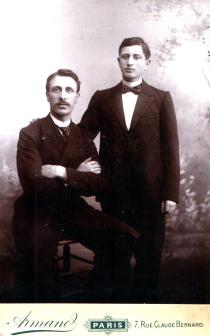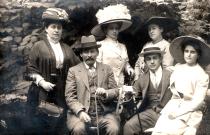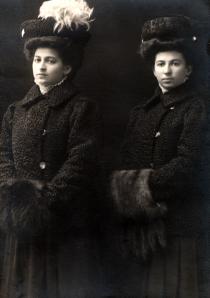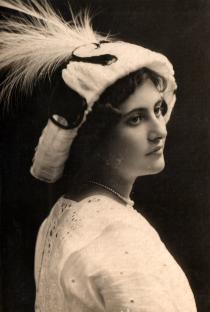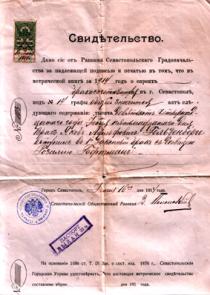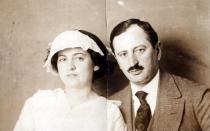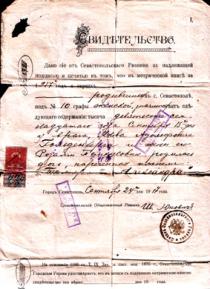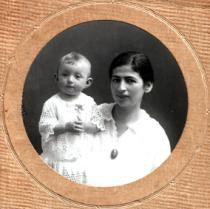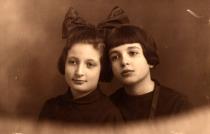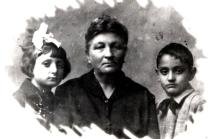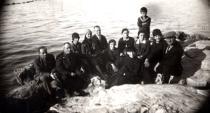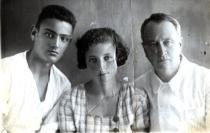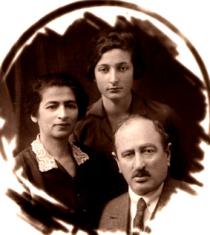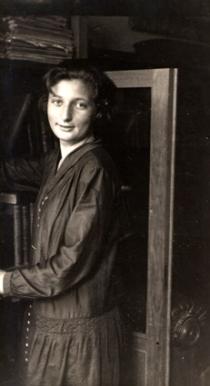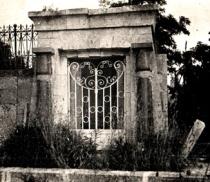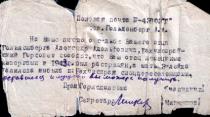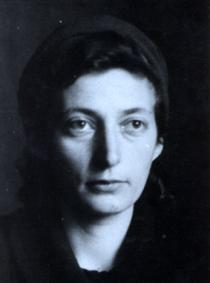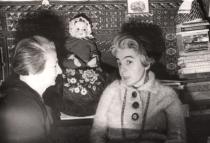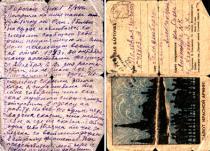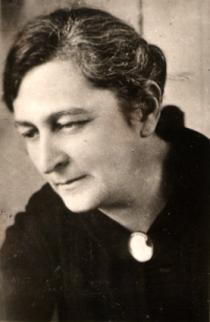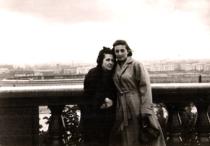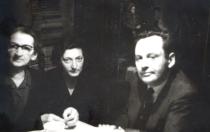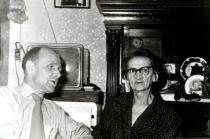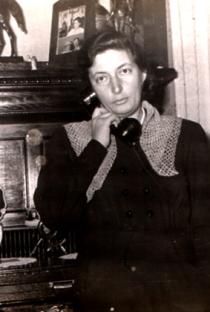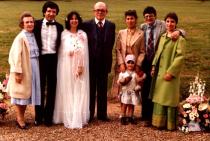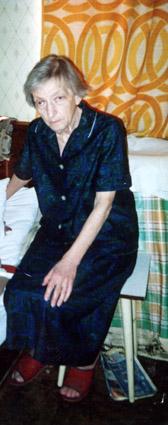This is me, my grandmother Dora Goldenberg and cousin Adolf Goldenberg, father brother Alexander's son.
The picture was taken in Sevastopol in 1930.
I started school from the 4th grade. First my mother and I left for France, and I went to school there , then I studied at home for some time.
In 1931 I went to the closest 7-year school in our vicinity. I was more prone for the Arts than sciences, but nobody was interested in that. At that time engineering sciences were more important, while the Arts were condoned. I finished school satisfactorily.
Then I went to a vocational school by a famous marine plant in Sevastopol, where team training was practiced. Finishing 7 grades of schooling and that vocational school were equal to compulsory education.
There were several department in the vocation school, viz. mechanics, metal processing and wood processing. I had to work and study at the same time. I was milling-machine operator. It was not my cup of tea. Finally I was lucky to finish that vocational school somehow, and then I entered Rabfak, and I had to study a little bit.
It was a real ordeal for me. The hardest was metal resistance subject. Father went to have a talk with the teacher of that subject. The teacher told my father: "Your daughter is a good girl, but physics, mathematics and other precise science is not for her. She has to the Arts school".
I remember my parental grandmother Dora Goldenberg (maiden name Malinskaya) very well. She was born in 1860 in Simferopol. Grandmother remained on her own after her husband's death. Only God knows how she could have managed to raise and maintain five children by herself.
When they left Simferopol, her house was liquidated for some reason and she wandered from one child to another. She meandered moving from city to city, and from house to house. She went to Mikhail in Yuzovka [about 1200 to the south from Moscow] , then to Alexander in Simferopol, then to her daughter Adelaida in Moscow, then to her son Semion in Leningrad . She went to the families where her grandchildren were born.
Sometimes she stayed with us in Sevastopol. Grandmother was unemployed, she was a housewife. She was a wonderful home-maker. She was an excellent cook. After lunch she went into physical exercise. Sevastopol is situated in a mountainous area, on the Black Sea coast.
Often she used to stroll with us along Sevastopol and its outskirts. I cannot say I spent a lot of time with my grandmother. She mostly went to those children, who needed her help. My mother was a house-wife, besides we had a house-keeper.
So, there was no need in grandmother's help. I do not know what kind of education she got, but she used to write literately and was well-mannered. She must have finished lyceum. Neither she nor grandfather appeared to be religious.
I do not remember grandmother broach religious topics. She never observed Sabbath or other traditions. All her children were either unreligious like my father, or started professing other beliefs.
Grandmother suddenly died 1931 in our house. She was buried in the Jewish cemetery in Sevastopol. There were a lot of people at grandmother's funeral. All relatives got together- her children with their wives, children and grandchildren.
My cousin Adolf (my father brother Alexander Goldenberg’s son) graduated from Leningrad Polytechnic institute and became an engineer. He was mobilized to tank troops at the beginning of great patriotic war. He went through war, and was conferred many awards.
He lived in Moscow after war. He carried a dreadful document on his chest during war . It was a reference from Bakhchisarai district council regarding his parents' fate: 'Father was shot by the fascists and mother was exiled by Soviet authorities'. He met his future wife Olga before the war. It was a romantic story.
The fiancee was waiting for him, and they got married after war. Adolph's wife was Russian It was difficult for Adolf to find a job after war, maybe because he was a Jew.
He worked at scientific and research institute as an engineer. He was a post-graduate, and then defended doctorate degree. He was very intelligent. We were friends He was fair and kind. He was involved in metallurgy, and was a good expert.
He passed away in 1990 and buried in Moscow city cemetery.

